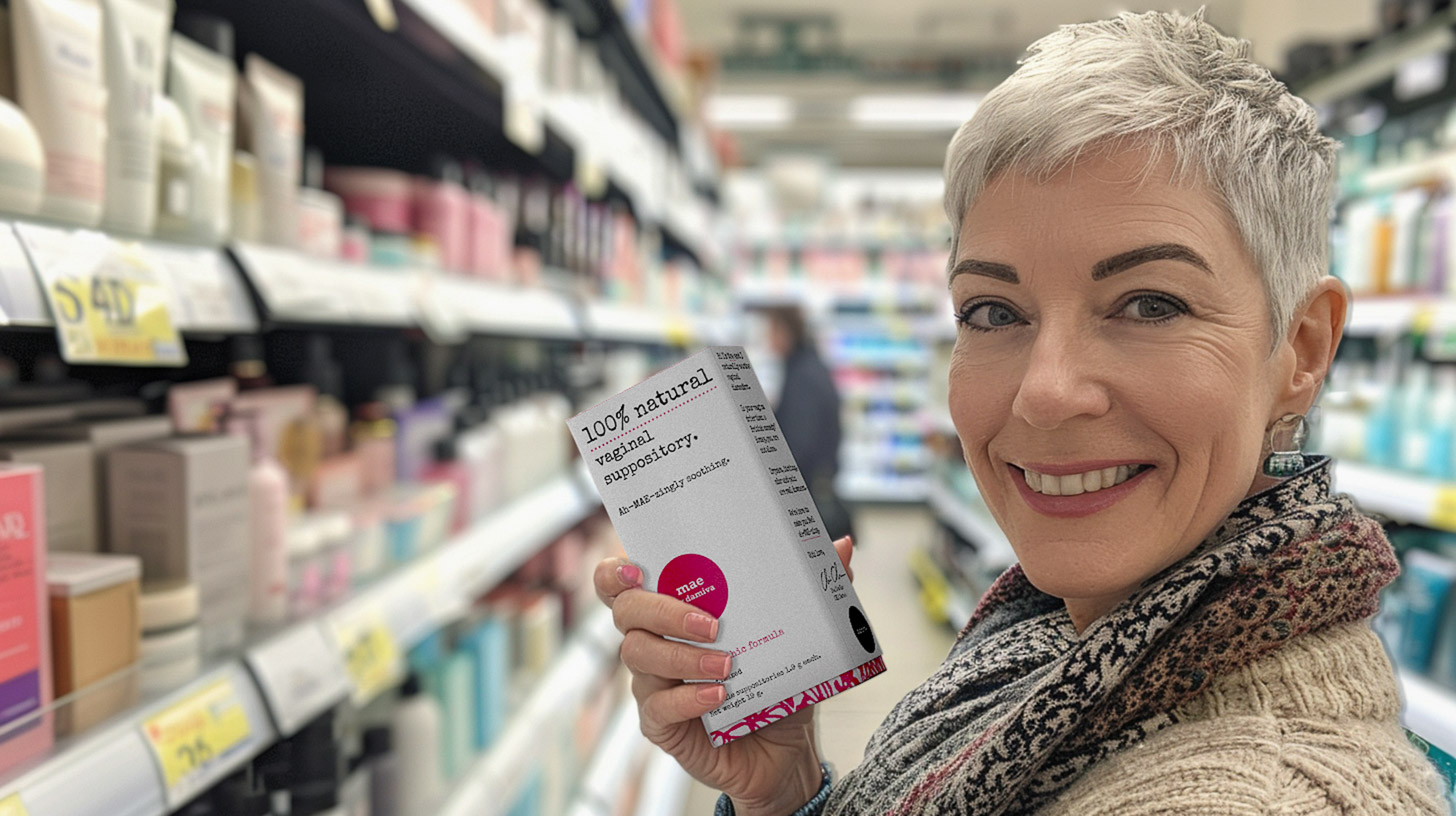Understanding Perimenopause
Perimenopause marks a significant transition in a woman’s life, typically starting in her 40s, but it can begin as early as the mid-30s. It’s the phase leading up to menopause, the point when menstruation ceases completely. During this time, the ovaries gradually produce less estrogen and progesterone, heralding the end of reproductive years. This hormonal shift can cause a range of symptoms, from the well-known hot flashes and mood swings to more surprising ones that we will explore in this article.
Common vs. Surprising Symptoms
While many are familiar with common perimenopausal symptoms such as irregular periods and night sweats, there are several lesser-known signs that can be just as impactful. These can include changes in auditory perception, cardiovascular irregularities like heart palpitations, and neurological quirks such as tingling extremities. Recognizing these symptoms is crucial, as they can affect daily life and overall well-being.
The Importance of Recognizing Unusual Symptoms
Understanding the full spectrum of perimenopausal symptoms is vital for several reasons. Firstly, it can alleviate concerns over unexpected bodily changes, providing reassurance that these are a normal part of the transition. Secondly, recognizing unusual symptoms can help in seeking appropriate treatment and making lifestyle adjustments to manage them effectively. Lastly, being informed empowers women to have informed discussions with healthcare providers, ensuring that they receive the support and care needed during this transformative period.
As we delve into the surprising symptoms of perimenopause, remember that knowledge is power. By understanding the changes your body is going through, you can navigate this phase with confidence and grace.
Auditory Changes: Ringing in the Ears
Types of Auditory Disturbances
During perimenopause, many women report experiencing auditory disturbances, a lesser-known symptom of this transitional phase. These disturbances can manifest in various forms, including tinnitus, which is characterized by hearing noises such as ringing, buzzing, or humming in the absence of external sound. Other auditory changes may include heightened sensitivity to everyday sounds, difficulty in distinguishing conversations in noisy environments, and a general sense of hearing loss or muffled hearing.
Hormonal Fluctuations and Hearing
The link between hormonal fluctuations and hearing issues during perimenopause is not fully understood, but evidence suggests a strong connection. Estrogen and progesterone, hormones that see significant changes during this period, have receptors in the auditory system. These hormones are thought to influence blood flow and nerve function within the ear, which can lead to auditory symptoms. For instance, estrogen affects the central auditory processing system, and its decline may contribute to the development of tinnitus or other hearing irregularities.
Managing Auditory Symptoms
Managing auditory symptoms during perimenopause involves a multifaceted approach. Here are some strategies that may help alleviate these symptoms:
- Avoid potential irritants: Reducing exposure to loud noises, nicotine, and caffeine can help prevent exacerbation of tinnitus and other auditory disturbances.
- Stress management: Since stress can worsen tinnitus, incorporating relaxation techniques such as meditation, deep breathing, or yoga into your routine may provide relief.
- Limit alcohol consumption: Alcohol can increase blood flow to the inner ear, potentially aggravating tinnitus. Moderating alcohol intake may help manage symptoms.
- Sound therapy: Using white noise machines or other sources of soft, ambient sound can mask the internal noise caused by tinnitus, making it less noticeable.
- Hormone Replacement Therapy (HRT): For some women, HRT may help balance hormone levels and reduce auditory symptoms. However, it’s important to discuss the risks and benefits with a healthcare provider.
- Dietary adjustments: Incorporating phytoestrogen-rich foods into your diet may help balance hormones naturally.
- Regular exercise: Physical activity can boost overall mood and reduce stress, which may indirectly help manage tinnitus.
- Alternative treatments: Some women find relief through homeopathy, herbal remedies like Black Cohosh and St. John’s Wort, or other complementary therapies. Consulting with a specialist in this field is advisable, as herbs can interact with medications.
It’s crucial to consult with a healthcare professional to rule out other causes of hearing changes and to discuss appropriate treatment options. Understanding and addressing these surprising symptoms can significantly improve the quality of life for women undergoing perimenopause.

Cardiovascular Manifestations: Heart Palpitations
Link Between FSH Levels and Heart Rhythm
During perimenopause, fluctuations in hormone levels, particularly estrogen and follicle-stimulating hormone (FSH), can have a variety of systemic effects, including on the cardiovascular system. Research has indicated a potential link between elevated FSH levels and heart rhythm irregularities, such as palpitations. Palpitations are sensations of rapid, irregular, or forceful heartbeats that can be concerning to many women experiencing perimenopause. The exact mechanism by which FSH may influence cardiac rhythm is not fully understood, but it is thought to be related to the hormone’s role in regulating the cardiovascular system’s response to changing estrogen levels.
Differentiating Menopausal Palpitations from Other Causes
While palpitations during perimenopause are often benign and related to hormonal changes, it is crucial to differentiate them from palpitations caused by other medical conditions. Factors such as stress, caffeine intake, certain medications, and lifestyle habits can contribute to palpitations. Additionally, underlying cardiac conditions, such as arrhythmias or structural heart disease, must be ruled out. A thorough medical evaluation, including a detailed history, physical examination, and possibly diagnostic testing such as an electrocardiogram (EKG) or Holter monitor, can help distinguish menopausal palpitations from more serious causes.
When to Seek Medical Advice
While occasional heart palpitations can be a normal part of perimenopause, certain symptoms warrant prompt medical attention. Women should seek advice if palpitations are accompanied by dizziness, chest pain, shortness of breath, or fainting. Persistent or worsening palpitations, or those that interfere with daily activities, also require evaluation. It is essential to consult with a healthcare provider to ensure that palpitations are not a sign of a more serious underlying condition and to discuss potential management strategies.
Understanding the nature of perimenopausal symptoms, including cardiovascular manifestations like heart palpitations, empowers women to seek appropriate care and reassurance. By recognizing unusual symptoms and their potential links to hormonal changes, women can better navigate the perimenopausal transition with confidence and support from their healthcare providers.
Neurological Symptoms: Tingling Extremities
Nutrient Absorption in Menopause
During perimenopause, the body’s ability to absorb essential nutrients can be compromised due to hormonal changes. Estrogen plays a crucial role in maintaining the gastrointestinal lining, which is responsible for nutrient absorption. As estrogen levels fluctuate and eventually decline, this can lead to a decrease in the absorption efficiency of vital nutrients. This disruption can particularly affect the nervous system, which relies on a steady supply of vitamins and minerals to function correctly.
The Role of Vitamin B12
Vitamin B12 is essential for maintaining healthy nerve cells and the production of DNA and RNA. In perimenopause, the body’s capacity to absorb vitamin B12 can diminish, leading to potential deficiencies. A lack of B12 can cause a range of neurological symptoms, including the tingling sensation in the extremities, known as paresthesia. This symptom is often described as a feeling of pins and needles or numbness in the hands, feet, arms, or legs. Ensuring adequate intake of vitamin B12 through diet or supplementation can help manage these neurological changes.
Impact of Antacids on Nutrient Levels
Many women in perimenopause experience gastrointestinal discomfort and may turn to antacids for relief. However, the use of antacids can further impair the absorption of essential nutrients, including vitamin B12. Antacids work by neutralizing stomach acid, which is necessary for the release of vitamin B12 from food. With reduced stomach acid, the bioavailability of vitamin B12 decreases, exacerbating the risk of deficiency and neurological symptoms. Women experiencing perimenopause should be mindful of antacid use and consider alternative methods to manage gastrointestinal symptoms, such as dietary changes or consulting a healthcare provider.

⭐️⭐️⭐️⭐️⭐️
“I needed a product like this for medical reasons. Thanks to this product I was able to do my physical therapy. The formula is very comfortable. It provides the right amount of lubrication. I will continue to use. I’m very happy to have found this because nothing else was working.”
Beatriz E, Cleo Customer
Physical Coordination: Clumsiness and Bruising
Understanding Increased Clumsiness
During perimenopause, many women report a noticeable increase in clumsiness. This symptom can manifest as a tendency to drop objects, trip over, or bump into things more frequently than usual. While it may seem minor, this lack of coordination can be both frustrating and concerning. The root of this issue often lies in hormonal fluctuations, particularly the decline in estrogen levels, which can affect the central nervous system and impair spatial awareness. Additionally, perimenopausal sleep disturbances can contribute to a lack of focus and a decrease in motor skills, further exacerbating feelings of clumsiness.
Hormonal Changes and Bruising
Another surprising symptom that can accompany perimenopause is an increased tendency to bruise easily. Estrogen plays a crucial role in maintaining the strength and resilience of blood vessel walls. As estrogen levels drop, these vessels become more fragile and prone to bruising from even minor bumps or injuries that previously would not have caused any noticeable mark. Moreover, skin becomes thinner with age, offering less protection and making bruises more apparent. It’s important to differentiate between normal perimenopausal bruising and symptoms of a more serious condition, such as a blood clotting disorder or the side effects of medication.
Diet and Nutrient Intake
Addressing diet and nutrient intake can play a significant role in managing symptoms of clumsiness and bruising during perimenopause. A balanced diet rich in vitamins C and K is essential for the health of blood vessels and the formation of collagen, which helps in the prevention of bruising. Foods such as citrus fruits, green leafy vegetables, and berries are excellent sources of these nutrients. Omega-3 fatty acids, found in fish and flaxseeds, can also support vascular health. Additionally, ensuring adequate intake of vitamin D and calcium is important for bone strength, which can help prevent injuries from falls due to clumsiness. Regular exercise can improve balance and coordination, potentially reducing the risk of accidental injuries. It’s advisable for women to consult with a healthcare provider to ensure their diet includes the necessary nutrients to support their overall health during this transition.
It is essential for women to be aware of these less commonly discussed symptoms of perimenopause. By understanding the underlying causes and taking proactive steps in diet and lifestyle, it is possible to manage these symptoms effectively and maintain a better quality of life during this period of change.
Mucosal Dryness: Dry Mouth and Eyes
Estrogen and Mucosal Health
The decline in estrogen levels during perimenopause can have a significant impact on various mucosal surfaces in the body, including those in the mouth and eyes. Estrogen is known to help maintain the moisture and health of mucosal tissues. When its levels drop, women may experience dryness in areas that were previously well-lubricated. This condition is not only uncomfortable but can also lead to further complications if left unaddressed.
Symptoms and Daily Impact
Perimenopausal women often report a persistent feeling of dryness in their mouth and eyes. This can lead to a range of symptoms, including a tacky or sore mouth, a burning sensation on the tongue, increased thirst, and difficulties wearing contact lenses due to insufficient lubrication. The lack of saliva, a condition known as xerostomia, can also affect oral health, increasing the risk of cavities, gingivitis, and periodontal disease. Similarly, dry eyes can cause irritation, redness, and an increased risk of eye infections. These symptoms can significantly impact daily life, making routine activities such as speaking, eating, and maintaining oral hygiene challenging and uncomfortable.
Strategies for Relief
There are several strategies that women can employ to manage the symptoms of mucosal dryness during perimenopause:
- Hydration: Drinking plenty of fluids can help alleviate dryness. Carrying a water bottle and sipping regularly throughout the day is a simple yet effective measure.
- Saliva substitutes: Over-the-counter saliva substitutes, such as artificial saliva pastilles and sprays, can provide temporary relief for dry mouth.
- Chewing gum: Sugar-free gum can stimulate saliva production and provide some respite from dry mouth.
- Dietary adjustments: Avoiding dehydrating substances like caffeine and alcohol, as well as spicy, salty, or dry foods, can help maintain moisture levels in the mouth.
- Good oral hygiene: Regular brushing and flossing, along with visits to the dentist, can help prevent the oral health issues associated with dry mouth.
- Lip balm: Applying lip balm can prevent lips from becoming dry and cracked, a common side effect of a dry mouth.
- Humidifiers: Using a humidifier, especially during dry seasons or in air-conditioned environments, can add moisture to the air and help with dry eyes.
- Eye drops: Lubricating eye drops, or artificial tears, can provide relief for dry eyes.
While these strategies can offer symptomatic relief, it is also important to consult with healthcare professionals to explore potential underlying causes and to discuss the possibility of hormone replacement therapy (HRT) or other treatments that may address the hormonal imbalances contributing to mucosal dryness.
Dental Health: Gum and Teeth Issues
Inflammation and Dental Health
During perimenopause, the decline in estrogen levels can lead to a variety of changes in your mouth, including gum inflammation, also known as menopausal gingivostomatitis. This condition can cause gums to become swollen, pale, shiny, or deep-red, and they may bleed easily during brushing or flossing. The hormonal fluctuations experienced during this life stage can also exacerbate existing dental issues, making inflammation a more common occurrence. It’s crucial to maintain vigilant oral hygiene practices and consult with a dental professional if you notice any signs of gum disease.
Bone Density and Estrogen
Estrogen plays a significant role in maintaining bone density, and its decrease during perimenopause can lead to osteoporosis. This condition is not limited to the spine or hips; it can also affect the jawbone, leading to a higher risk of tooth loss. The weakening of the jawbone may cause a recession of the gums and a loosening of the teeth. It’s important to address these issues promptly with a healthcare provider, as they can significantly impact dental health and overall quality of life.
Preventive Measures and Treatments
To protect your oral health during perimenopause, consider the following strategies:
- Regular Dental Checkups: Schedule visits with your dentist for cleanings and exams to catch any potential problems early.
- Good Oral Hygiene: Brush at least twice a day, floss regularly, and use mouthwash to reduce the risk of gum disease and tooth decay.
- Healthy Diet: Consume a balanced diet rich in calcium and vitamin D to support bone health.
- Hydration: Drink plenty of water to combat dry mouth, a common symptom that can lead to increased bacterial growth and tooth decay.
- Hormone Replacement Therapy (HRT): Discuss with your doctor the potential benefits and risks of HRT for managing menopausal symptoms, including those affecting oral health.
- Quit Smoking: Smoking can exacerbate dental problems and negatively affect gum health.
By adopting these preventive measures and seeking appropriate treatments, you can help mitigate the dental health challenges associated with perimenopause.

⭐️⭐️⭐️⭐️⭐️ “My biggest symptoms are GSM, and because of Mae, they are mostly addressed. I have lived Mae for almost 7 years, and I endorse it all the time.” Margaret C., Damiva Mae Customer
⭐️⭐️⭐️⭐️⭐️ “I’m in my 60’s and post menopause. My doctor recommended I try Damiva MAE, after taking me off hormones (due to developing cysts). I LOVE it. All natural, no hormones, Great vaginal moisturizer. Easy to insert and pleasant smell. So Thankful for MAE.” Paula, Damiva Mae Customer
Urinary System Changes: Incontinence and Infections
Estrogen’s Role in Urinary Health
Estrogen, a key hormone in women’s health, plays a significant role in maintaining the integrity of the urinary system. Its influence extends to the urethra, bladder, and surrounding pelvic muscles. Estrogen receptors are present in the lower urinary tract, and their activation is crucial for the proper functioning of these tissues. During perimenopause, the fluctuating and overall decline in estrogen levels can lead to thinning of the urethral and vaginal tissues, reduced blood flow, and compromised mucosal layers, which are vital for defense against infections and maintaining continence.
Understanding Incontinence and Infections
Incontinence, particularly stress urinary incontinence (SUI) and urge urinary incontinence (UUI), often emerges or worsens during perimenopause. The weakening of pelvic floor muscles and the urethral sphincter, coupled with diminished mucosal health, contribute to these conditions. Urinary tract infections (UTIs) also become more common as the protective mucosal layer of the bladder and urethra weakens, allowing bacteria easier access to these areas. The changes in the vaginal flora, with a decrease in lactobacilli and an increase in pH, further exacerbate the risk of UTIs.
Managing Urinary Symptoms
Management of urinary symptoms during perimenopause involves a multifaceted approach. Lifestyle modifications, such as fluid management, bladder training, and pelvic floor muscle exercises, can provide significant relief. For those experiencing vaginal atrophy and recurrent UTIs, topical estrogen therapy may be beneficial in restoring mucosal health and reducing infection rates. However, it is essential to differentiate between symptoms that are a direct result of perimenopause and those that may indicate other underlying conditions. Women experiencing significant or persistent symptoms should seek medical advice to explore treatment options, including hormone therapy, and to rule out other potential causes.
It is important to note that while local estrogen treatments can alleviate some urinary symptoms, they may not be effective for all women, and the potential risks and benefits should be discussed with a healthcare provider. Additionally, non-hormonal options, such as vaginal moisturizers, water-based lubricants, and probiotics, may also support urinary health during this transitional period.
Conclusion: Managing Perimenopause
Adopting a Holistic Approach
As women navigate the unpredictable waters of perimenopause, it becomes increasingly clear that a holistic approach to managing symptoms is not just beneficial, but necessary. This means looking beyond traditional medical treatments and considering the mind, body, and spirit as interconnected parts of a whole. By embracing a holistic perspective, women can find balance and relief through a combination of lifestyle changes, natural remedies, and, when necessary, medical interventions.
Natural Options and Lifestyle Adjustments
When it comes to managing perimenopausal symptoms, natural options and lifestyle adjustments can play a pivotal role. Dietary changes, such as incorporating phytoestrogen-rich foods and maintaining a balanced diet, can help stabilize hormone levels. Regular physical activity, including strength training and yoga, can improve mood, bone density, and overall well-being. Mindfulness practices, like meditation and deep-breathing exercises, can alleviate stress and enhance emotional health. Additionally, supplements such as black cohosh may offer relief for some women, though it’s important to consult with a healthcare provider before starting any new supplement regimen.
Empowerment Through Knowledge
Knowledge is power, and this is especially true for women in perimenopause. Understanding the changes occurring in their bodies empowers women to make informed decisions about their health. Education about perimenopause can demystify the process, reduce anxiety, and provide a sense of control. Women should be encouraged to seek out reputable sources of information, engage in open dialogues with healthcare professionals, and share experiences with peers who are also navigating this transition. By becoming well-informed, women can advocate for themselves and choose the management strategies that best align with their individual needs and preferences.
In conclusion, managing perimenopause effectively requires a multifaceted approach that honors the complexity of the female body. By adopting a holistic perspective, exploring natural and lifestyle-based solutions, and empowering themselves through knowledge, women can transition through perimenopause with grace and confidence.





















